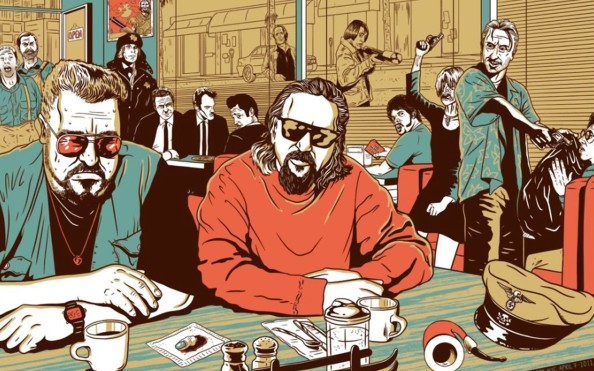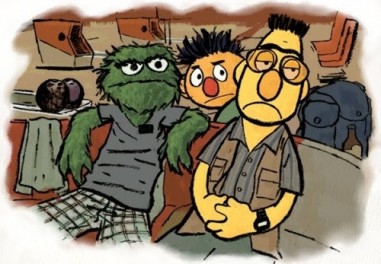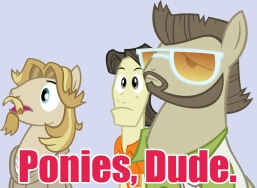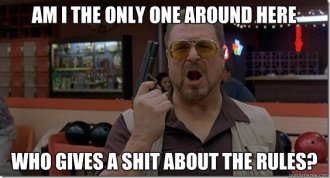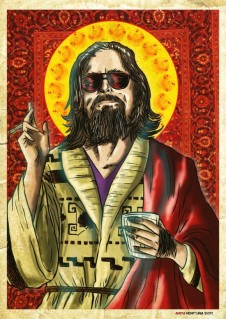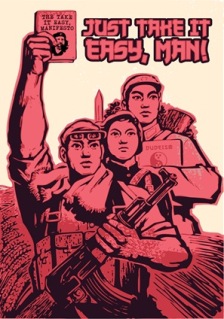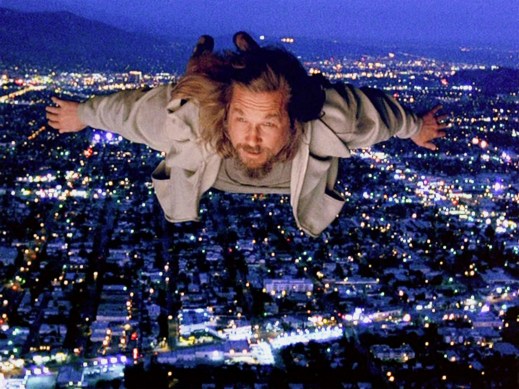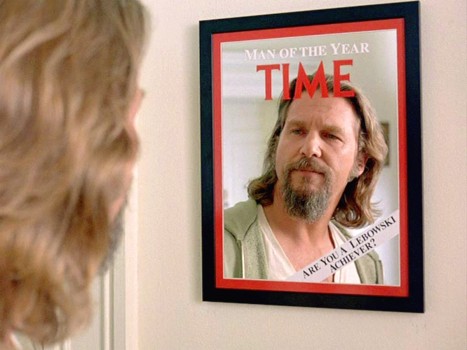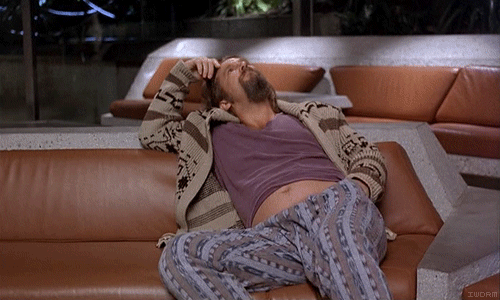He goes by “the Dude”. Call him Duder, His Dudeness, or El Duderino if you’re not into the whole brevity thing. Laid-back Los Angelenos, the Dude cruises through life on a roll of a bowling ball, a few joints, and generous gulps of White Russian cocktails; if you think that makes him a no-good, lazy bum, well, that’s just like your opinion, man.
Regarded an American cult classic, The Big Lebowski (1998) single-handedly launched a pop culture phenomena of its own design. The film has spawned countless parodies, Internet memes, cheesy memorabilia and “Lebowski conventions” across the world. Moreover, a myriad of fan fiction, philosophy books, and literary dissertations have all been written on the ethos of the Dude. What about The Big Lebowski seems to straddle people’s perceptions of high versus low art? Is the film just another stoner flick or does the bumbling misadventures of the Dude masquerade a deep spiritual philosophy?
Both, actually. Like a good rug that ties the room together, The Big Lebowski meshes conflicting “colors”, values, ideologies, and characters; there are nihilists versus pacifists, fake kidnappings, unchecked aggression, femme fatales, cowboys, pistols, and bowling balls. The film’s fixture as a pop culture treasure reflects on the tapestry of American society as a whole (okay, the rug analogy ends here). The film’s diversity of philosophies add social commentary on the state of freedom, civil liberties, masculinity, and aggression in the U.S. of A. The bizarre journey of the Dude, Walter, and Donnie have taken on different meaning for people; through the Dude’s reactions toward the sheer absurdity around him, some fans have adopted the Dude’s moral code as a way of life.
The Church of the Latter Day Dude is perhaps the only religious cult born from a movie. Dudeism is described as “an ancient philosophy that preaches non-preachiness, and practices as little as possible.” Dudists cite philosophers like Lao Tzu, Heraclitus, and Gandhi as inspirational icons for “takin’ ‘er easy”. Dudeism lies closer to the tenets of Pacifism, and yet Dudists just seem like a lazy-man version of epic guys like the Tank Man.
Nietzsche gets thrown around a lot in Lebowski discussions; the “God is dead” theorist, Nietzsche claimed nihilism was the logical conclusion to the demise of divinity. Advances in modern science and secularization of the Western world effectively “killed” God, the basis of all meaning and value for Christians. The reactionaries to the meaninglessness of life were called nihilists, a strain of people that are mocked in The Big Lebowski. Germanic punks who spoof Kraftwerk album art, the Nihilists in the film are painted as whiny ‘Nazis’ who care about nothing. Nietzsche’s answer to the problem of nihilism was his belief in the Übermensch, an “over-man”, or “super-man”.
What if I told you…the Dude is the next step towards human evolution—the Übermensch, the superman we should all aspire to be?
Nietzsche’s Übermensch acts as his own God, giving himself his own set of values and moral codes to live by. Existing above the hive mind, the “over man” is an independent thinker that lives according to his own philosophy, never imposing his will upon others. No matter the circumstance, the Dude finds value in his life experiences in spite of all reason and logic. The film stages a fake kidnapping and multiple red herrings that lead to an ultimately pointless journey for the Dude—and yet, he still abides. In the face of nihilism and meaningless, the Dude recognizes life is short, and thus infinitely valuable.
Some have argued that the Dude is nihilistic himself, in that he is an unemployed slacker that doesn’t care or contribute to the society he lives in. On the contrary, the Dude does care about things—he cares about his friends, his league games, his rug and rum—simple things most people wouldn’t be satisfied with in life. The Dude has found his own personal nirvana of happiness within the means he’s chosen to live with–and isn’t that worth admiring? It’s not surprising fans have established the Dude as a paragon for contented, spiritual living in the 21st century.
“I don’t know about you, but I take comfort in that. It’s good knowing he’s out there, The Dude, taking her easy for all us sinners.”
The narrator imparts us with these final, matter-of-fact thoughts about the man in the mirror. His choice of words read like an inversion of “Jesus dying for our sins”; in contrast, the Dude simply abides through the chaos. In our modern times, laziness and non-confrontation as a personal ethos has become the mantra for peaceful times. A broadcast of George Bush’s “this aggression will not stand”, features prominently in the opening. What if everyone were like the Dude? Would the world achieve peace and equality or descend into complete anarchy? No matter your opinion of the Dude, he remains a pop culture icon for the ages because sometimes there’s a man for his own time and place.

